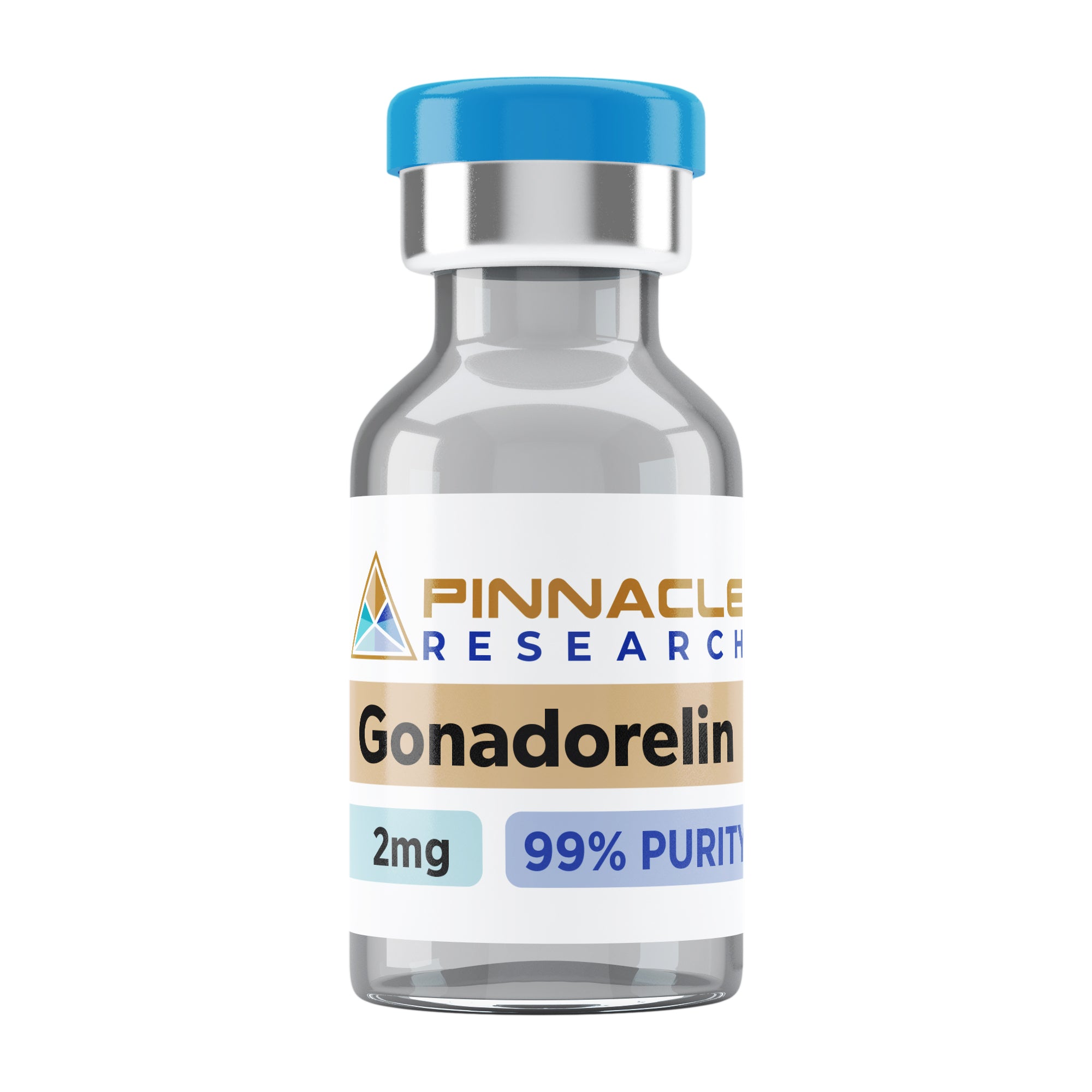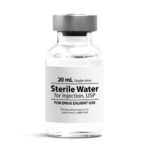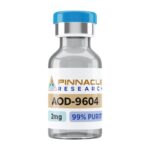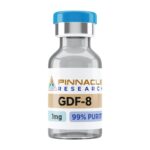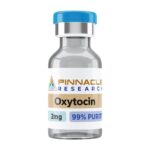About Gonadorelin
Gonadorelin is an agonist of the gonadotropin-releasing hormone, showing impressive potential in treating hypogonadism and infertility. Research studies on the synthetic peptide suggest the Gonadorelin peptide can be instrumental in slowing the growth of prostate and breast cancer cells. Additional studies show that the research compound can also treat Alzheimer’s disease. Even though the research compound is still not available for human use, there is great hope that it will help improve the overall health of human beings.
What Is Gonadorelin (GnRH)?
Gonadorelin (GnRH) is a synthetic decapeptide and an agonist of the gonadotropin-releasing hormone. It can stimulate the release and synthesis of the follicle-stimulating and luteinizing hormones. The most common use of the synthetic decapeptide is treating menstrual cycle irregularities, infertility and hypogonadism. Scientists have also discovered the potentiality of the research compound in acting as a diagnostic agent when assessing pituitary function. Ongoing studies focus on the potential uses of gonadorelin in treating Alzheimer’s, prostate and breast cancer.
Gonadorelin Structure
- Sequence: Pyr-His-Trp-Ser-Tyr-Gly-Leu-Arg-Pro-Gly
- Molecular Formula: C55H75N17O13
- Molecular Weight: 1182.311 g/mol
- Synonyms: Somatocrinin, Somatoliberin, Growth Hormone Releasing Factor
Gonadorelin Research Effects
Breast Cancer Prevention
Clinical studies have confirmed that prolonged exposure to high levels of estrogen increases the risk of suffering from breast cancer in women. Most women would use menopausal hormone replacement therapy or estrogen-containing birth control, especially if they started their menses early. These women are at a higher risk of developing breast cancer because some breast cancer tissues require estrogen to grow. Many breast cancer treatments involve minimizing the estrogen levels in the body or using estrogen receptors. Research studies into gonadorelin have revealed that Somatoliberin can be used in suppressing the ovarian production of the hormone estrogen. The theory behind the treatment method is that some women are likely to develop breast cancer in their postmenopausal years due to environmental and genetic factors. Therefore using gonadorelin in this scenario is a safe and cost-effective way of reducing the risk and burden of breast cancer. Additionally, the benefits of the peptide aren’t limited to breast cancer prevention and treatment only. Still, they can be used in adjuvant therapies with anti-estrogens and can reduce disease progression by more than 50%.
Prostate Cancer
One of the most hormone-sensitive cancers in human history is prostate cancer. While many people might see this as problematic, it can be advantageous in creating medication related to treating prostate cancer. Prostate cancer growth and development can be slowed and even stopped by limiting testosterone supply and its derivatives. Cutting hormonal flow through surgical removal of the male testicles in patients with aggressive prostate cancer and gonadorelin administration proved to be a more effective and possibly reversible treatment option.
The Growth Hormone Releasing Factor has been used for many decades in prostate cancer among men. But the GnRH blockade doesn’t fully facilitate the treatment of prostate cancer. Hence scientists developed a new FDA-approved medication for treating castration-resistant prostate cancer (CRPC). The drugs have a new line of defense against the progression and metastasis of prostate cancer cells. Using the drugs and the Growth Hormone Releasing Factor in treating prostate cancer is known as combined androgen blockade (CAB).
Reduce Dementia Risk
According to research studies, sex hormones, like luteinizing hormone (LH), affect the brain. Increased levels of the LH hormone cause increased neuropathology. Testosterone is essential in maintaining brain health and preserving cognitive function. Scientists are investigating the gonadorelin derivatives to confirm if they can achieve selective interference of luteinizing hormone production and the potential benefits. So far, there has been a detailed understanding and discovery that leuprolide is more effective in decreasing Alzheimer’s risk than other gonadorelin analogues. Researchers are continuing with their studies on the interaction of genes in treating Alzheimer’s disease. The Growth Hormone Releasing Factor is the primary peptide in the study.
The Growth Hormone Releasing Factor isn’t a new synthetic peptide in treating various health conditions in mammals and humans. Nevertheless, researchers continue to investigate the potentiality of the GnRH and GnRH analogues and how doctors can use them in developing disease treatment therapies and normal physiology. One of the most prominent discoveries is the capability of gonadorelin in treating prostate cancer, allowing doctors to come up with treatment therapies capable of curing more than 99% of people with prostate cancer. As more studies on the Growth Hormone Releasing Factor continue, the medical field is optimistic about finding how to effectively use Gonadorelin (GnRH) to treat various ailments like Alzheimer’s. The synthetic peptide exhibited excellent subcutaneous bioavailability, minimal side effects, and low oral when administered to mice. However, the dosage used in mice doesn’t scale up to that for humans.
Gonadorelin (GnRH) is a synthetic with great potential. While it’s only available for purchase by licensed researchers, you can still learn about the latest research studies and discoveries about the peptide.
